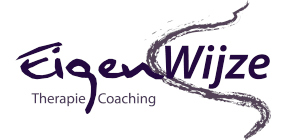Gestalt Therapy is a form of psychotherapy which focuses on contact. We are always in contact, whether it is with other people or with the objects near us. Through contact, we experience the world around us. Events occurring in our lives can, however, disturb or unbalance this contact with the world. When we fail to recover this balance, it is possible we get stuck in life, or develop psychological symptoms. Gestalt therapy is aimed at finding the contact that has been disturbed, and at re-establishing the balance.
- Experiencing the here and now are at the heart of the process, not so much experiences from past or future events.
- Gestalt Therapy is a method that focuses on experience; its strength is in having you ‘do and experience’, rather than just ‘talk about…’
Feeling ‘weak-kneed’ or ‘a weight on your shoulders’; unconsciously, physical signals often give us a clear indication of where we are getting stuck, or what our needs are. Becoming aware of this fact is an important step towards recovery and growth. A new balance can arise between thinking, physical perception and emotion. This process of renewed awareness can be exciting, confronting, liberating, and even simply fun.
Examples of situations where Gestalt Therapy can be of help:
- Finding a balance between work and private life
- Expecting too much of yourself, or of others
- Having trouble saying “no”
- Finding your way in a foreign culture
- Finding purpose in life
- Undefined feelings
I am a qualified gestalt therapist and occupational therapist. In addition to my own practice in Gestalt therapy, I work for a national institute for aiding visually impaired people to rehabilitate. My focus is to help people to regain their own independence and improve the quality of their lives. In addition to this ‘practical’ rehabilitation, I support people with their grief over the loss of their eyesight, and the search for renewed purpose in life. The way I work is based on the gestalt theory, which enables me to focus optimally on the relation between the practical and the psychological aspects of medical rehabilitation.
Since my student years, I lived in Leiden for many years.
My sources for inspiration are:
- Hiking/tracking
- Music
- Theatresports
Fee
€ 75.- per session (60 min.)
Students € 65.- per session (60 min.)
Coaching
A typical coaching process takes between 5 and 12 sessions – depending on the type of coaching requested.
Quotation on request
Compensation by social welfare
Several health insurances in the Netherlands, list gestalt therapy as eligible for compensation. The manner in which compensation is provided varies and depends on your subscription; therefore I always recommend checking this with your insurance company.
Next steps
During the first intake meeting, we will explore your problem and establish what your need or question is. Accordingly, we will decide together whether we will continue to next meetings. The therapy or coaching process depends on your need and earlier dealings with the issue. As such, after five sessions, we normally plan an (intermediate) evaluation.
Ethical Code
As a member of the Dutch/Flemish professional association of Gestalt Therapists, the NVAGT and the EAGT (European Association for Gestalt Therapy, I subscribe to its professional code and complaints procedure, as prescribed by the NVAGT and the EAGT professional association.
Thijs Kreukels
Gestaltpraktijk Eigen Wijze
(Do it Your Way)
info@thijskreukels.nl
Adress Visitors
Dé Plek
Kanaalweg 157
2321 JW Leiden
Post Adress
Horstlaan 12
2252 AL Voorschoten
Telephone
0031(0)6 – 445 706 38
In case of no answer, please leave a message and I will return your call. Practice in Amstelveen and Leiden.
